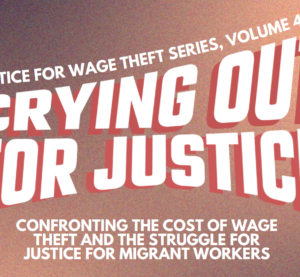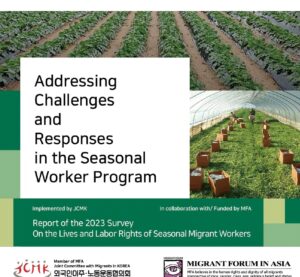Migrant Workers’ Rights to Social Protection in ASEAN: Case Studies of Indonesia, Philippines, Singapore and Thailand
— December 19, 2011Prepared for Migrant Forum in Asia and Friedrich-Ebert-Stiftung by the Mahidol Migration Centre, Institute for Population and Social Research, Mahidol University, Thailand
Principal Investigator: Andy Hall, Foreign Expert, Mahidol Migration Centre
Research Associates: Suchita Manajit, Mai Thi Thanh Nga Na
The informalisation of labour and the increasing insecurity of work across the world means that many of the origin and destination countries of migrant workers, particularly in the developing world and particularly for low skilled migrants in ASEAN, have a situation wherein the vast majority of the working population works in informal work sectors that are not fully covered by labour laws, let alone social protection measures. Social protection or social security primarily remains the domain of formal work in the private sector, where workers are well paid and secure, and in the public sector. In addition, the sending and receiving countries of low-skilled migrants, particularly in the developing world and as seen is ASEAN, have weak social protection or social security systems and organisations. These systems provide little effective coverage for workers in the case of loss of income or in emergency situations, and standards are ill enforced. Often families are the primary means of support for workers when things go wrong, rather than social protection or a welfare state.



